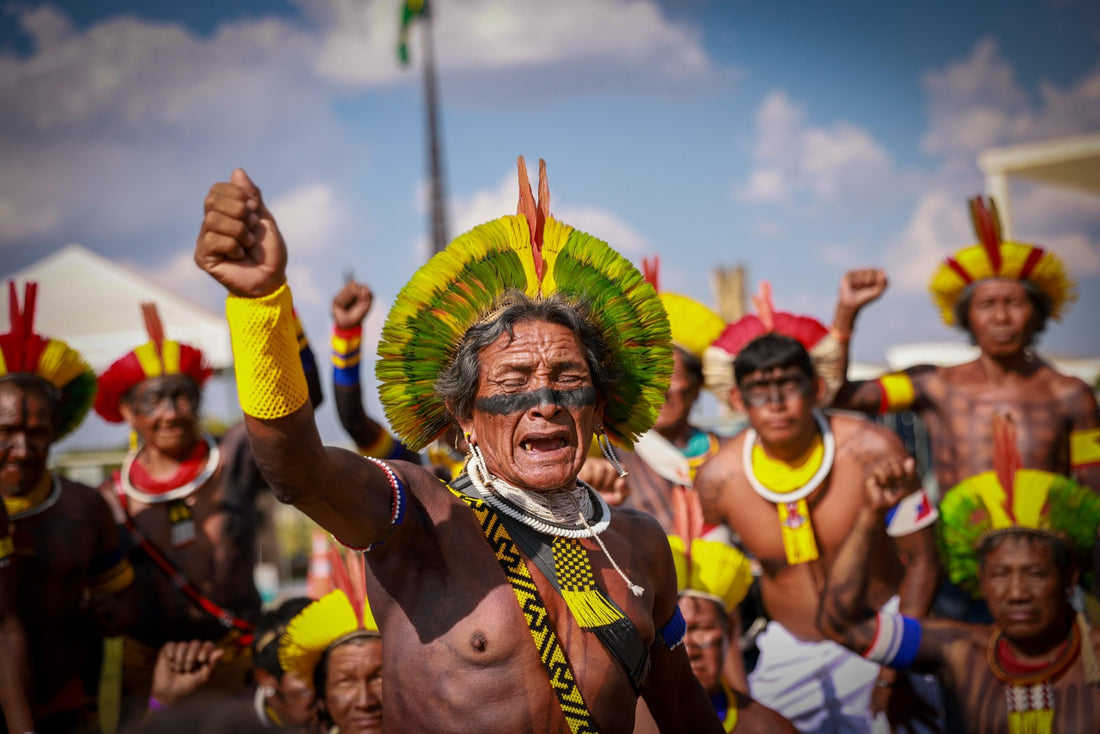
Indigenous and Ruralists: The Impasse over the Temporal Framework in Brazil
The debate around the Temporal Framework, which defines the criteria for demarcating indigenous lands in Brazil, has generated intense discussion between indigenous people and ruralists, taking the topic back to the STF plenary. But after all, what is the Temporal Framework and why is it so controversial?
What is the Time Frame?
The Temporal Framework is a thesis that establishes that indigenous people would only have the right to lands that were in their possession on October 5, 1988, the date of promulgation of the Federal Constitution, or that were under legal dispute at that time. This thesis is defended by ruralists and aims to define clear criteria for the demarcation of indigenous lands, seeking to avoid land conflicts.
The political-legal impasse
Minister Gilmar Mendes' decision to suspend all processes dealing with the Temporal Framework Law led to the establishment of a Special Commission, with the aim of presenting proposals for a solution to the political-legal impasse. While ruralists defend the need for a time frame to calm disputes over territories, indigenous people and their defenders argue that the right to land is original, that is, prior to the State itself.
The political-legal impasse surrounding the Temporal Framework reflects the fundamental divergence between ruralists, who defend the need for a temporal framework, and indigenous people and their defenders, who contest this vision. Ruralists argue that defining a deadline is essential to guarantee legal certainty and avoid land conflicts. They claim that, without a clear time frame, there would be a risk of indigenous claims over lands that were legally occupied by third parties after 1988.
On the other hand, indigenous people and their defenders argue that the right to land is original, that is, it arises from the ancestral and traditional occupation of these areas, which dates back to periods before the formation of the Brazilian State. They claim that the imposition of a time frame disregards the history and rights of indigenous peoples, who have been historically marginalized and had their lands invaded and occupied illegally.
The suspension of the processes by Gilmar Mendes' decision and the establishment of the Special Commission are reflections of this impasse, which seeks to find a solution to reconcile these two opposing perspectives. The Commission has the challenge of presenting proposals that guarantee the rights of indigenous people without disregarding the rights of landowners, seeking a balance between environmental protection, the preservation of the cultural rights of indigenous peoples and the legal security of rural owners.
The STF decision and its implications
In September 2023, the STF rejected the time frame thesis, recognizing the constitutional protection of the original rights over the lands that indigenous people traditionally occupy, regardless of the existence of a time frame in 1988. This decision resulted in the suspension of the processes that were being processed in court regarding land demarcation.
The environmental and social debate
In addition to the legal aspect, the debate on the time frame also involves environmental and social issues. The indigenous people and their supporters argue that validating the thesis could result in a huge environmental calamity, with the deforestation of millions of hectares of native areas and the emission of billions of tons of CO2.
The debate on the time frame goes beyond legal issues and also involves highly relevant environmental and social considerations. Defenders of indigenous peoples warn of the devastating impacts that validating the time frame thesis could have on the environment. They argue that the decision could lead to the deforestation of millions of hectares of native areas, which would result in the emission of billions of tons of carbon dioxide (CO2) into the atmosphere.
This environmental concern is based on the fact that indigenous lands are often areas of high biodiversity and of great importance for the preservation of local ecosystems. Deforestation of these areas would not only result in the irreparable loss of natural habitats and animal and plant species, but would also significantly contribute to increased greenhouse gas emissions, further worsening global climate change.
In addition to the environmental impacts, validating the time frame thesis would also have serious social consequences for indigenous peoples. Many of these people depend directly on the land for their subsistence and for the preservation of their traditional cultures and ways of life. The loss of these lands would mean not only the loss of their home, but also the loss of their identity and livelihood.
Therefore, the debate over the time frame should not only be seen as a legal issue, but also as an environmental and social issue of great importance, which has the potential to profoundly affect not only indigenous peoples, but also the environment and society. society as a whole.
Conclusion
The impasse between indigenous people and ruralists over the Temporal Framework reflects a complex conflict, which involves not only legal issues, but also environmental, social and political ones. The search for a solution that reconciles the interests of the different parties involved is essential to guarantee the protection of indigenous rights and the preservation of the environment.


















































